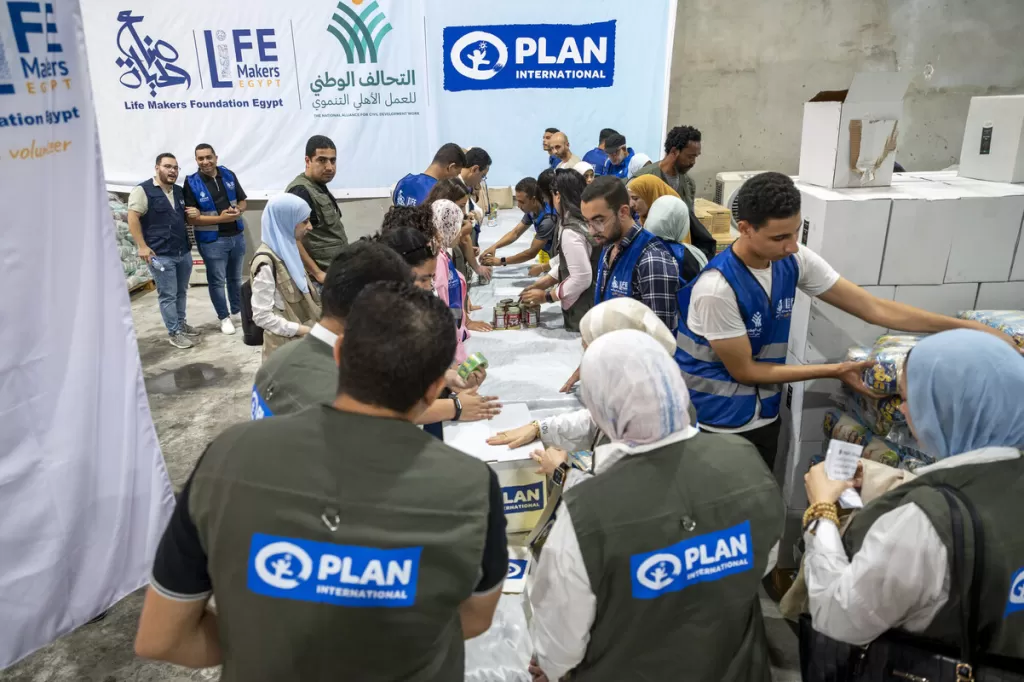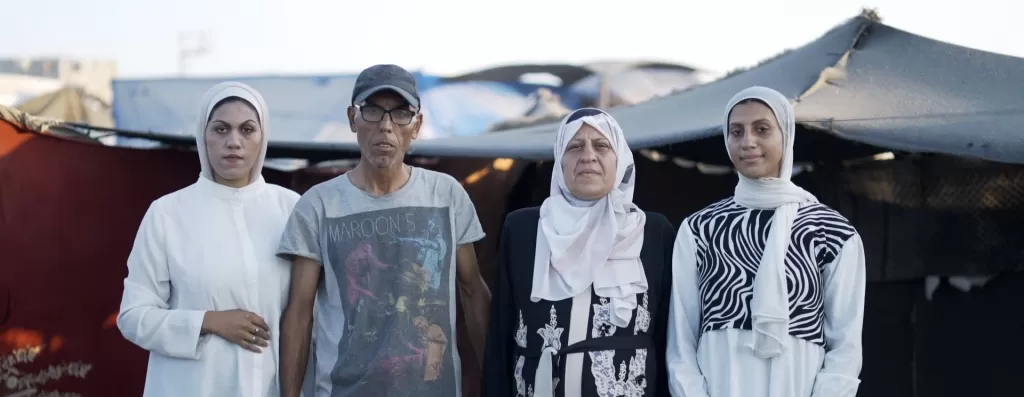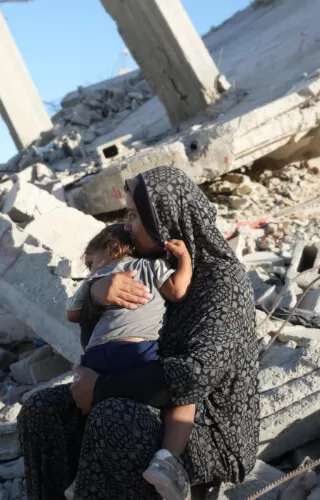
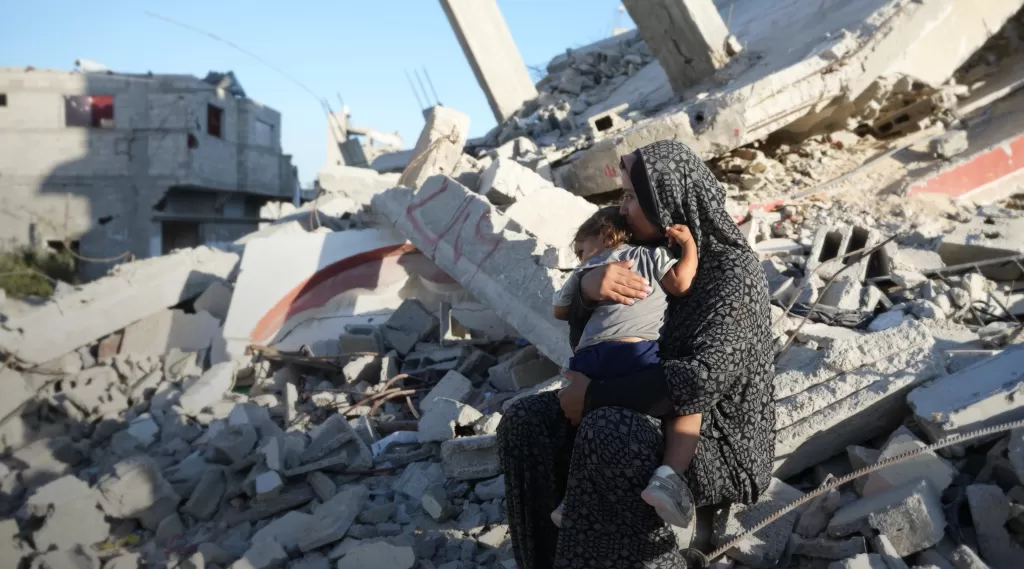
Middle East
Humanitarian
Appeal
Middle East
Humanitarian Appeal
Conflict in the Middle East has devastated lives. The ceasefire agreement in Gaza brings hope and relief. DEC charities are now scaling up their work but urgently need more funds. Your support can save lives. Donate now.
Aaliyah* holds her daughter on the remains of a damaged building in Gaza in October 2024. The mother of six built a temporary shelter opposite her demolished house and depends entirely on aid to feed her family. Photo: DEC/Arete/Abdallah Alsayed
The levels of need are catastrophic

2.1 million
people facing extreme food shortages with famine confirmed across Gaza City

1.9 million
people displaced in Gaza, and tens of thousands more in Lebanon
Gaza response: October '24 to April '25
Much of this work was made possible by the increase in aid delivered during the ceasefire agreement at the start of this year, but the situation deteriorated rapidly.
The full-scale blockade on supplies entering Gaza during this period had a devastating impact on the work of DEC charities and their local partners, leaving them unable to deliver lifesaving food, water and medicine.
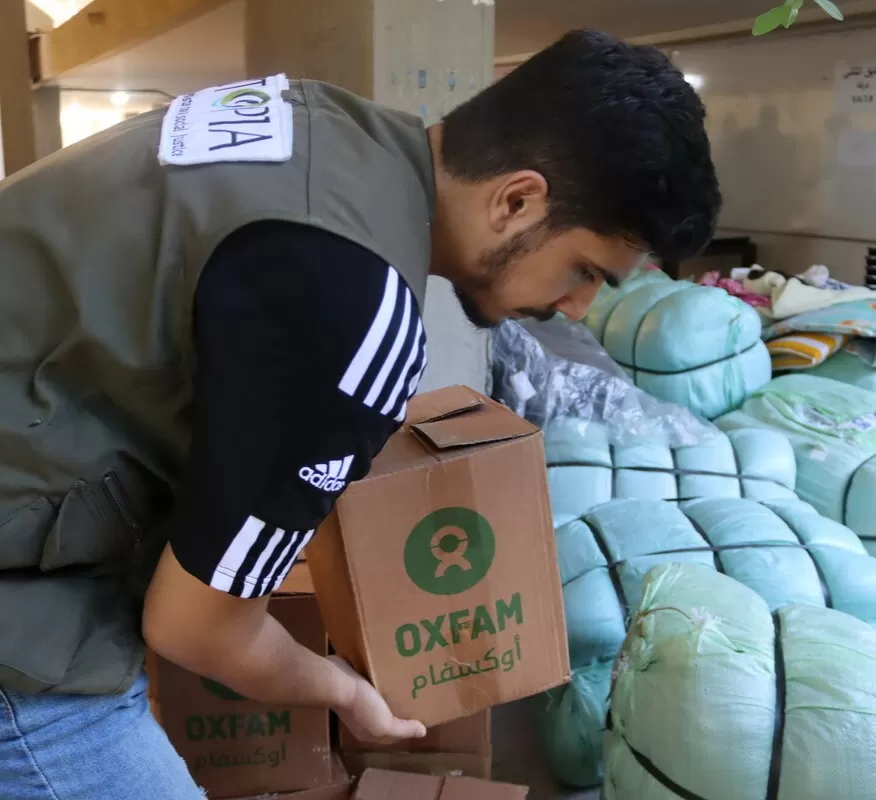
Mohammad, an aid worker from Oxfam’s local partner in north Lebanon distributes hygiene kits to displaced people at a collective shelter. Photo: Fatima Ghemrawi/Utopia for Social Justice/Oxfam
Where DEC charities are responding
Conflict in the Middle East has devastated lives across the region, and millions have fled their homes in search of safety.
DEC charities are responding in Gaza, Lebanon, the West Bank and Syria to meet urgent needs. The ceasefire agreement in Gaza means they are preparing to scale up their work again and reach more people with support. Read more about where and how our charities are responding.
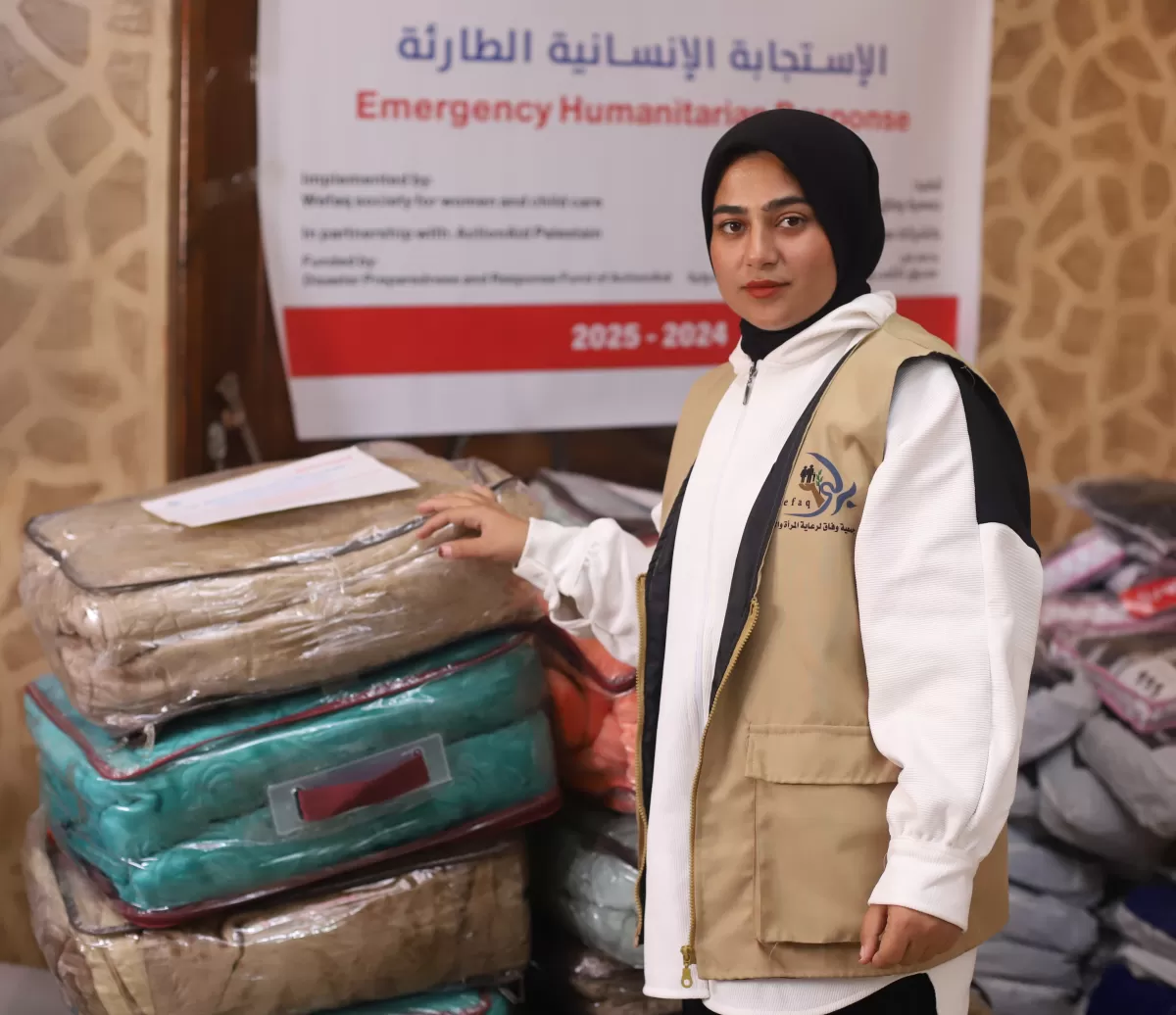
Salam, a volunteer with Wefaq organisation in Gaza and partner of DEC charity ActionAid, Feb 2025. Image: Wattan Media Network/ActionAid
How DEC charities are providing aid as the crisis evolves
Throughout the crisis DEC charities have been working hard to cope with limited deliveries of aid. The ceasefire agreement in Gaza means they are now preparing to scale up their work and reach more people with support.
The needs are huge, and DEC charities and their local partners are working tirelessly to deliver lifesaving food, water, medicine and essential supplies.
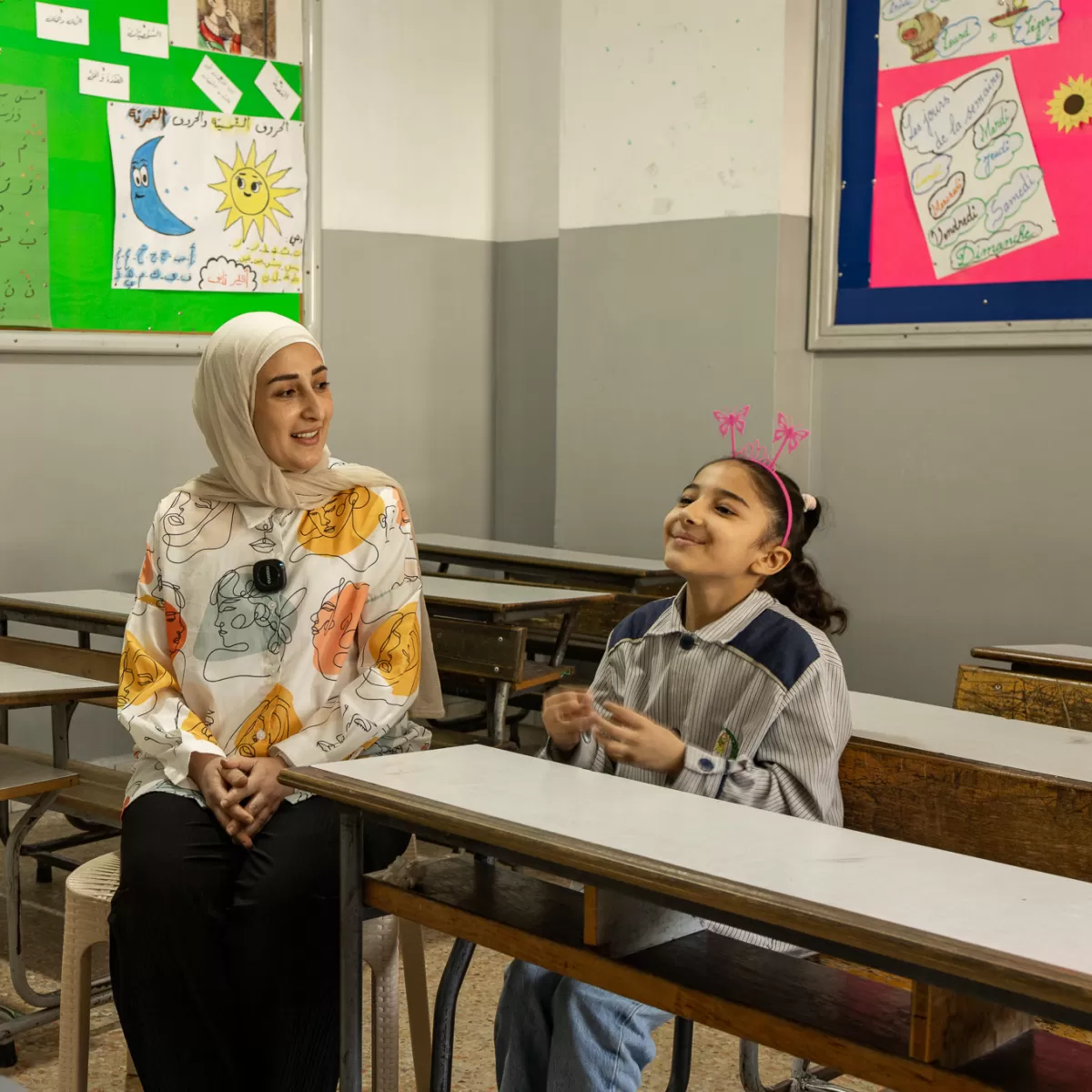
Maryam sits with her seven year old daughter Zahraa after taking part in psychological support activities, May 2025. Image: Carmen Yahchouchi / DEC / Fairpicture
Local expertise helps meet urgent needs in Lebanon
The ceasefire agreement in Lebanon at the end of last year meant some of the hundreds of thousands of people displaced by conflict could return to their communities and start to rebuild their lives.
Find out more about how DEC charities have been working with local partners in Lebanon, to provide families with essential support to meet their needs.
Appeal News
The latest news from the situation in the Middle East.
Jump to
Their Majesties The King and Queen support the DEC’s Middle East Humanitarian Appeal
21 October 2025
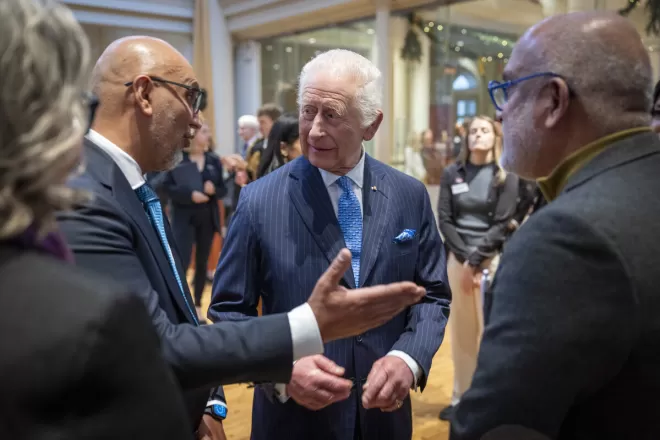
His Majesty The King talks to Saleh Saeed, DEC CEO. Image: Andrew Aitchison
Their Majesties The King and Queen are among those who have generously donated to the Disasters Emergency Committee’s Middle East Humanitarian Appeal since the ceasefire agreement in Gaza.
It is Their Majesties’ third donation to the Middle East Humanitarian Appeal.
Saleh Saeed, Chief Executive of the Disasters Emergency Committee, said:
“It has been heartening to see generous donations to the Middle East Humanitarian Appeal since the ceasefire agreement in Gaza, and we are grateful to Their Majesties The King and Queen for their ongoing support of the DEC and our appeals.
Sky News: Renewed appeal for donations as aid starts to enter Gaza
16 October 2025
Sky News have amplified the DEC's renewed call for donations amid the ceasefire agreement in Gaza.
The article highlights how DEC charities and local partners have been scaling up their work in Gaza since the agreement took effect last week.
Emphasising that £10 could provide blankets for two people, while £50 could provide emergency food for five families for one week.
Donate now. Save Lives.
Welsh Government gives £250,000 to Middle East Humanitarian Appeal
15 October 2025
The Welsh first minister Eluned Morgan announced today a £250,000 donation to the Middle East Humanitarian Appeal.
The government had previously donated £100,000 in October 2024, followed by another £100,000 in January 2025.
Thanks to the generous donation, the appeal has now raised over £3.1 million total in Wales.
The Scotsman: This is the beginning of a long, difficult road to recovery
12 October 2025
Huw Owen of DEC Scotland writes for Scottish publication The Scotsman, looking at the opportunities presented by the ceasefire agreement in Gaza.
He describes the ceasefire as a time for the DEC’s 15 members charities and their indefatigable local partners to "take stock, restock and revitalise their operations for a monumental task ahead".
The DEC's Middle East Humanitarian Appeal has raised £4.4m in Scotland.
